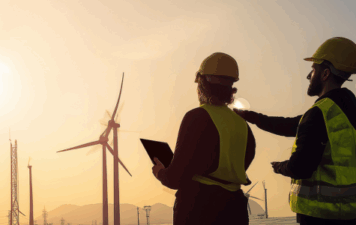Discover the role of an Industrial Risk Engineer:
Could you describe your job and your day-to-day tasks?
I’m an industrial risk research engineer responsible for modelling dangerous phenomena. As part of Airbus Protect’s sustainability team, I’m required to draw up regulatory documents to explain the risks of various industrial activities to people and the environment. In order to quantify accidental risks, I use numerical calculation tools to model physical phenomena that take place during industrial accidents, such as fires.
How do you analyse industrial risks?
Broadly speaking, my role has two distinct parts. The first involves making an inventory of the environmental impacts of an industrial site’s activity (water consumption, atmospheric emissions, etc.). The second involves modelling the physical phenomena that occur during industrial accidents.
As an industrial risk engineer, I use a range of digital modelling tools, from ‘simple’ Excel calculations to more complex 3D tools. These tools are developed in-house by Airbus Protect, by private organisations specialising in industrial safety, and by public bodies (e.g. national research laboratories). Some are even OpenSource.To support my hypotheses, I also rely on existing scientific literature.
The ultimate aim of my work is to quantify accident scenarios in terms of severity and probability of occurrence in order to check whether the level of risk is ‘acceptable’ in the eyes of legislators. In some cases, it’s also my responsibility to propose technical measures to control the risks I’ve identified.
Can you explain the concept of ‘acceptable risk’?
Risks are quantified in terms of probability of occurrence and severity. My team combines these two factors to give a ‘risk level’. We then refer to existing legislative frameworks to ascertain whether this risk level is low enough to be deemed acceptable. The ultimate decision around acceptability doesn’t lie with us, but with legislators.
How has your experience at Airbus Protect been since November?
Great! The assignments I’ve been given so far correspond with my expectations and match the kind of work I wanted to do when I left school. What’s more, I now feel very much a part of the team, which helps to make my day-to-day professional life enjoyable.
What advice would you give to women who want to become industrial risk engineers?
My advice is not to limit your ambitions. If you want to get a better idea of what it’s like to work in this field, you can also read testimonials and talk to women who have been there and done it. If you’re based in France, check out the Elles Bougent Association, which raises the profile of women in engineering. Other countries also have similar associations.
Interested in a career as an industrial risk engineer? Check out our current job openings.
 Sustainability
Sustainability 



